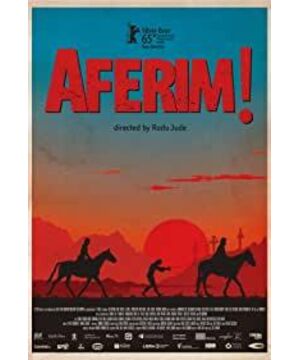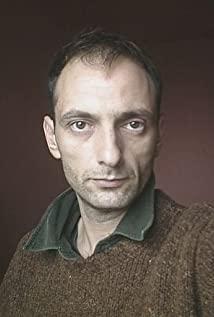Text: East SIR Official Account: Leave the book aside
Since the beginning of the new millennium, a whirlwind from Eastern Europe has swept the world's film scene. People call it the "Romanian New Wave."
Although this title has never been recognized by the Romanian film industry, the "New York Times" reported that in interviews with their reporters, both Romanian film critics and Romanian directors insisted that " there is really no'Romanian New Wave' ".
But it is undeniable that in the last two decades, Romanian film directors have been recognized by the world’s important film awards in droves.
At the 71st Berlin International Film Festival in 2021, Radu Jude won the festival's highest award-the Golden Bear Award , for his "Unlucky Sex, Crazy Porn" which fans nicknamed "pornographic films". This is the trend The latest results.
The Berlin International Film Festival can be described as the blessed land of Radu Jude, who has attracted the attention of the world many times.
In 2015, he made the feature film "Applause!" "Won the Best Director Award at the 65th Berlin International Film Festival, which also attracted worldwide applause.
"Cheers! "It is considered a breakthrough from the Romanian New Wave. There is no hand-held photography or the collective trauma of the totalitarian era. It connects the feudal slavery in Romanian history with contemporary reality.
Film critics called it the "Romanian version of "Assassin Nie Yinniang". The image style and composition shown by Radu Jude in the film were compared with Hou Xiaoxian and Pasolini.
"Cheers! "I was also shortlisted for the 6th Beijing International Film Festival and won the Best Photography Award.
At the 70th Berlin International Film Festival in the last edition, it is very rare for Radu Jude to have two films nominated for the forum section of the festival at the same time. They are the documentary "The Train "The Exit" and the independently directed feature film "Capital Print".
Among them, "Capital Print" brought the audience back to Romania in the era of Ceausescu in a unique way of presentation, a large-scale look back at that totalitarian era, and aroused great discussion.
The film began to show slogans in solidarity with Poland in the streets of a small town in northern Romania. The secret police intervened in the investigation and visited street people and construction workers nearby. Soon a high school student was confirmed by the secret police to be the culprit.
Soon the divorced parents of high school students were involved, several classmates were involved, and the teachers in the school were involved. It was really a net of heaven and earth. Until the death of the high school students with different opinions, until the secret police drank the high school students' imaginative coffee.
The film is adapted from the play of the same name by the Romanian playwright Ganina Cole Bunariu, and the material of the play comes from the declassified Romanian secret police file.
The most shocking thing in the movie is not the content, but the way the director presents the story.
The film was deliberately divided by the director into two parts that have no connection or intersection with each other. Part of it is the presentation of the process of tracing the case by the secret police. Part of it is a clip of Romanian social news at that time, which is the Romanian social scene in the official context at that time.
In this film, when the secret police followed the clue of the Polish Solidarity trade union slogan, it used almost the way that actors recited their lines on stage. This way of presentation has enabled the audience to break through the Brecht alienation effect in drama. And let the audience directly believe that what they see in front of them is a false performance.
The other part of the film uses Romanian TV news at the time. In this part, Romanian officials at all levels from Ceausescu and below are smiling, and Romania is prospering.
Even if there is a bit of negative news, it is the wealthy Romanian people who drove cars, drove uncivilizedly, honked the horn indiscriminately, and enforced the law impartially by the police.
In theory, this part is completely real material picked from society. However, its authenticity is well known to every audience.
The two parts were cross-edited by the director in the film, and the audience's sight was always jumping between false images and real events, and between real images and false facts.
This aspect arouses the audience's in-depth thinking about the reality of the image and the reality of the event. On the other hand, through the presentation of the social news section, the audience has a deeper thinking about the case of the secret police investigating high school students writing reactionary slogans.
What is presented in the social news can be seen as the full picture of Romania in the official context at the time. The people seen in the lens live and work in peace and the society is prosperous, but the audience understands that all of this is a performance.
In this context, the audience would instinctively ask that in the case of the secret police investigating a high school student writing reactionary slogans, the divorced parents unanimously expressed sorrow and tears at the son who made a big mistake; the school teachers rose up against the high school students and were filled with righteous indignation; The classmates around high school students did not know the incident; even the police's self-reported rescue of the high school students who made mistakes and the high school students’ misunderstandings caused by this. Is the true inner portrayal of the person involved or just another performance?
After a while, the audience will immediately question and resolve. All this is neither a true inner portrayal of the person involved nor another performance. They are just reflexive mechanical recitations of the standard answers provided to them by society in that situation.
At the beginning, the social environment did not allow them to think independently, and over time they lost the ability to think independently, and they lost their true inner thoughts, and they did not perform.
At this point, Radu Jude's ambitions are clear. The film is not just about the secret police investigating the case of high school students writing reactionary slogans, nor is it trying to vindicate the high school students. The film wanted to reflect the Romanian society at that time. The film uses the secret police to investigate the case of reactionary slogans written by high school students, and observes the sea with a dripping water, presenting a perverted society under the totalitarian rule of "true and false when false is true" before the eyes of the audience.
The film caption quoted Foucault’s words: "(Writing that book) was entirely out of the resonance of these humble lives, which I still feel as new, and these insignificant lives have been transformed into words in the words that crushed them. ash."
The film caption also quoted the Romanian poet Janstratan as saying: "Man cannot live in it, but can only describe it, and can only describe one percent of it."
Yes, for such a totalitarian society we can no longer live in it. We can only describe it, a one-percent description, and this description has no meaning to the people who used to be in it. They have been reduced to ashes. This description will Acting on us, acting on our present, acting on our future.
Add the WeChat account paokaishubenxbb to join the national fan group
View more about Aferim! reviews











